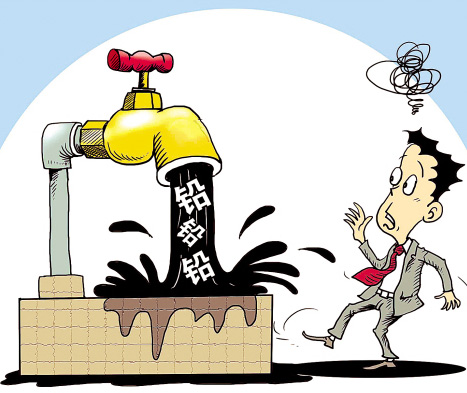(单词翻译:单击)
As Sharon Bertsch McGrayne notes in her absorbing history of industrial chemistry, Prometheans in the Lab, when employees at one plant developed irreversible delusions, a spokesman blandly informed reporters: "These men probably went insane because they worked too hard." Altogether at least fifteen workers died in the early days of production of leaded gasoline, and untold numbers of others became ill, often violently so; the exact numbers are unknown because the company nearly always managed to hush up news of embarrassing leakages, spills, and poisonings. At times, however, suppressing the news became impossible, most notably in 1924 when in a matter of days five production workers died and thirty-five more were turned into permanent staggering wrecks at a single ill-ventilated facility.
正如沙伦·伯奇·麦格雷恩在她的工业化学史《实验室里的普罗米修斯》一书中指出的,要是哪家工厂的雇员得了不可治愈的幻觉症,发言人便会厚颜无耻地告诉记者:“这些人之所以精神失常,很可能是因为工作太辛苦。”在生产含铅汽油的初期,至少有15名工人死亡,数不清的人得病,常常是大病。确切的数字无法知道,因为公司几乎总是能掩盖过去,从不透露令人难堪的泄漏、溢出和中毒等消息。然而,有的时候,压制消息已经不可能──尤其值得注意的是在1924年,在几天时间里,光在一个通风不良的场所就有5名生产工人死亡,35名工人终身残疾。
As rumors circulated about the dangers of the new product, ethyl's ebullient inventor, Thomas Midgley, decided to hold a demonstration for reporters to allay their concerns. As he chatted away about the company's commitment to safety, he poured tetraethyl lead over his hands, then held a beaker of it to his nose for sixty seconds, claiming all the while that he could repeat the procedure daily without harm. In fact, Midgley knew only too well the perils of lead poisoning: he had himself been made seriously ill from overexposure a few months earlier and now, except when reassuring journalists, never went near the stuff if he could help it.
随着有关新产品很危险的谣言四起,为了打消人们的担心,四乙铅汽油的发明者托马斯·米奇利决定当着记者的面作一次现场表演。他一面大谈公司如何确保安全,一面往自己的手上泼含铅汽油,还把一烧杯这类汽油放在鼻子跟前达60秒之久,不停声称他每天可以这么干而不受任何伤害。其实,米奇利心里对铅中毒的危险很清楚:他几个月之前还因接触太多而害了一场大病,现在除了在记者面前以外决不接近那玩意儿,只要可能的话。


